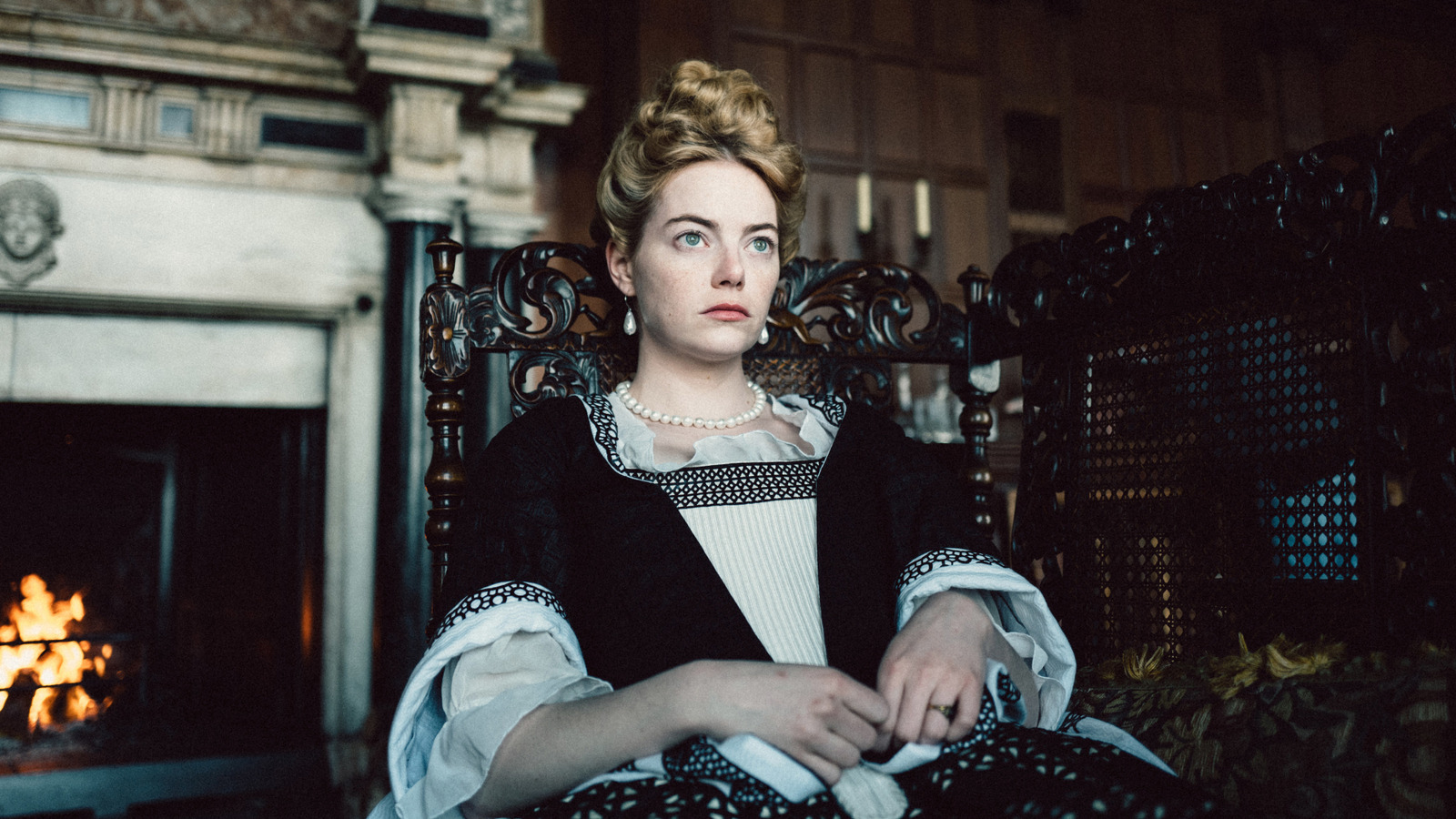
A “period piece” is simply a story or account set in a time other than the present. These works often require detailed sets, costumes, and research to accurately portray a specific era. While they may share the same label, a Western action movie and a Gothic romance book might not belong in the same genre since their themes and focus can differ greatly. Generally, period pieces tend to be more about human drama and historical events rather than high-action scenes.
Furthermore, period dramas have served as a platform for both cinematic representation and inclusivity, showcasing tales of love that transcend gender norms for centuries past, as well as mirroring contemporary societal issues through provocative narratives. Some of the most memorable films in history fall under this genre, with these 15 being our top picks for the greatest period films ever made.
15. Crimson Peak
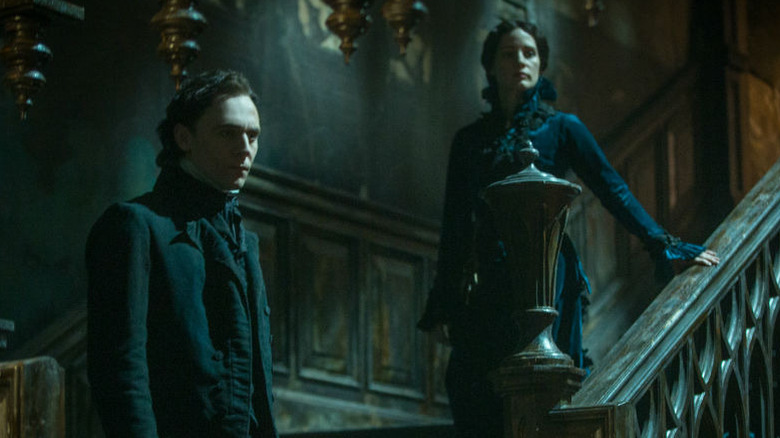
Guillermo del Toro is renowned for his love of fantasy, fairy tales, and gothic horror, yet one of his lesser-appreciated explorations into historical settings was the 2015 film “Crimson Peak.” Despite not being del Toro’s highest-rated work, “Crimson Peak” features Mia Wasikowska as Edith, an aspiring writer who falls in love with a quirky inventor, Thomas (portrayed by Tom Hiddleston), and relocates to his English manor with his mysterious sister, Lucille (Jessica Chastain). As Edith delves deeper into the manor, she encounters ghosts that haunt the family and compel her to scrutinize the complex relationship between the siblings.
The movie is truly scary, but it might resonate more with fans of romantic period pieces. As Del Toro mentioned to Vulture in 2024, “[It’s] a film that strikes a chord deep within those who love it… I aimed to create a grand, beautiful, and melodramatic spectacle, filled with stunning sets, emotional drama, beautiful lighting, and essentially, serve up an elaborate feast.” Here’s hoping future audiences come to appreciate “Crimson Peak” as one of Guillermo del Toro’s finest works.
14. Emma
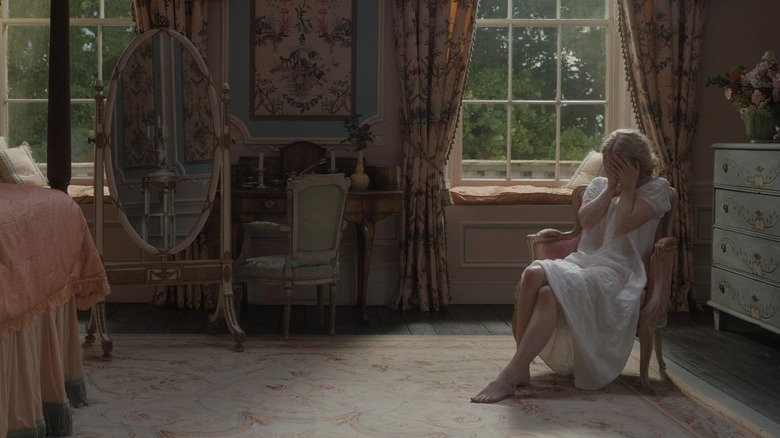
In 2020, the most captivating adaptation of Jane Austen’s 1815 novel “Emma” hit screens. This story revolves around a well-off English woman who meddles in the romantic affairs of those close to her. The lead role, portrayed by Anya Taylor-Joy as the central matchmaker, drew particular praise. The Athens Banner-Herald singled out Taylor-Joy, stating that she skillfully transformed a somewhat dislikable character into someone endearing and deserving of support.
Additionally, “Emma” boasts a robust ensemble of secondary actors such as Josh O’Connor, Mia Goth, and Bill Nighy. While some critics argue that its adherence to the source novel may be a drawback, there’s no denying that first-time director Autumn de Wilde breathed new life into this classic period drama like never before. Unfortunately, its theatrical release was halted by the COVID-19 pandemic.
13. Lady Chatterley’s Lover
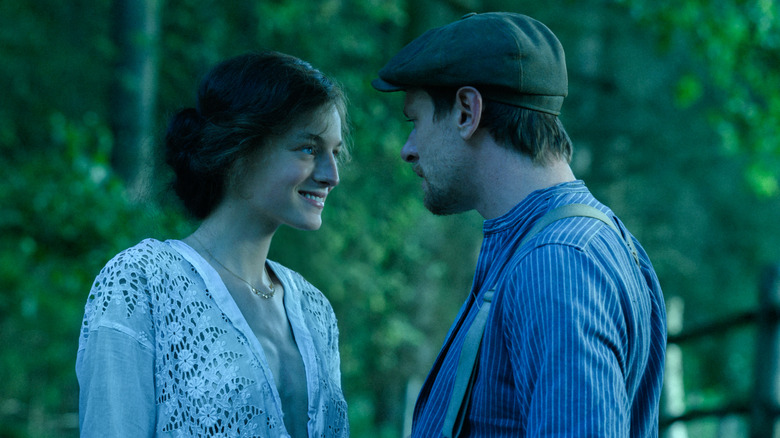
Similar to “Emma,” D.H. Lawrence’s novel “Lady Chatterley’s Lover,” published in 1928, is a widely recognized work of English literature, although it has gained notoriety for reasons other than its literary merit. Since its debut, the book has stirred up controversy due to its explicit content, featuring profanity and graphic depictions of sexual scenes that remain bold even by today’s standards. Fortunately, the 2022 adaptation remains faithful to these elements, with Emma Corrin portraying Constance Reid, a baroness who, following her husband’s return from World War I paralyzed, engages in a clandestine relationship with a working-class gamekeeper, played by Jack O’Connell.
When it comes to period films, “Lady Chatterley’s Lover” on Netflix is particularly passionate and lives up to the original novel’s notorious reputation for sensuality. As Variety noted in their review, director Laure de Clermont-Tonnerre skillfully chooses subtlety rather than pushing boundaries. For those who might mistakenly believe that period romances are too dull, “Lady Chatterley’s Lover” is an ideal movie to change your mind about the genre.
12. Lady Macbeth
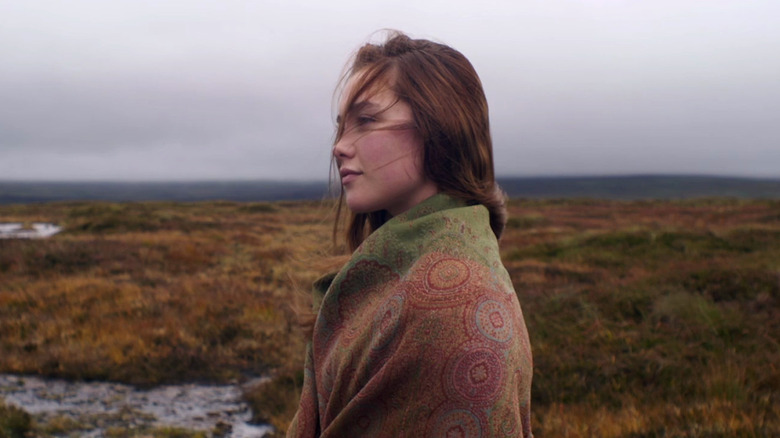
2016’s “Lady Macbeth” might not have garnered much initial attention upon its release, however, it significantly impacted the film industry by introducing the world to Florence Pugh. In her second film appearance, she portrayed Katharine, an English wife trapped in a loveless marriage with Alexander Lester (played by Paul Hilton). The performance is noteworthy for any movie enthusiast and offers a unique, modern twist for a period piece that feels both daring and innovative.
A critique by Another Gaze magazine noted that the selection of Cosmo Jarvis as Katharine’s lover Sebastian in the film added depth to its themes, suggesting that the movie’s narrative becomes more profound due to its casting choices and highlights how patriarchal structures foster gender, racial, and economic prejudice. Moreover, it boasts impressive set design reminiscent of period dramas at their finest, while its storyline is both thought-provoking and unexpected, which might leave some admirers of traditional, sentimental period films a bit perplexed.
11. Sense and Sensibility
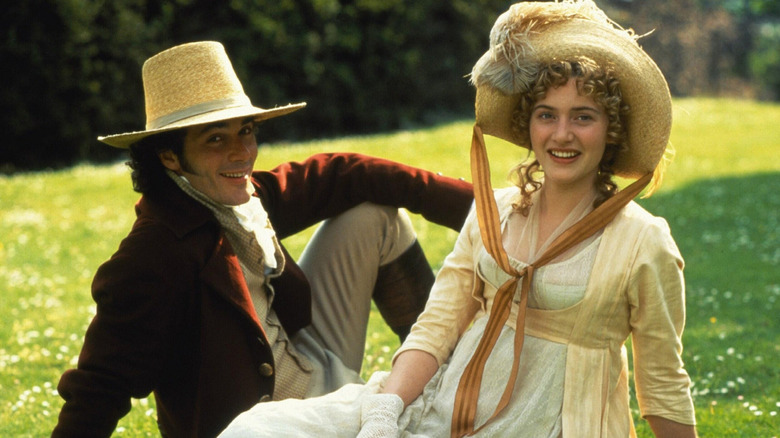
This list includes more than one interpretation of Jane Austen’s works, and the 1995 film adaptation of “Sense and Sensibility,” helmed by Ang Lee, is considered its most successful. Starring Emma Thompson as Elinor Dashwood and Kate Winslet as her sister Marianne, this movie features their struggles with financial hardship after leaving their family estate. They find themselves pursued by two suitors, portrayed by Hugh Grant and Alan Rickman.
Ang Lee’s adaptation of ‘Sense and Sensibility’ draws heavily from its original source, yet it stands out by capturing a unique tone that rivals contemporary romantic comedies. As Paul Laity pointed out in The Guardian in 2011, the film’s success is partly due to its Oscar-winning script from Thompson, which skillfully blends an updated style with respect for a modern audience without oversimplifying them. The story maintains its depth as a critique of class, money, and character, but prioritizes enjoyment and humor over anything else – a rare quality in period pieces. Despite not being a genre typically associated with comedy, ‘Sense and Sensibility’ manages to breathe fresh life into the period drama.
10. Barry Lyndon
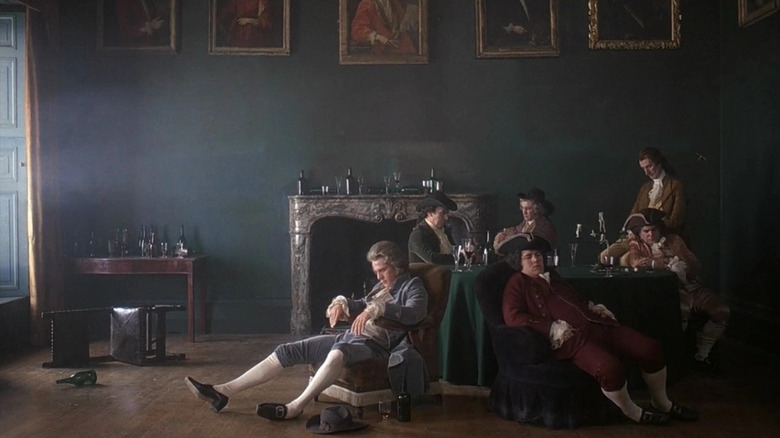
Stanley Kubrick, a legendary filmmaker, is widely recognized as one of the best directors in cinema history. However, among his impressive body of work, “Barry Lyndon,” released in 1975, is often overlooked. This three-hour period drama follows an 18th-century peasant, played by Ryan O’Neal, who rises through the social ranks by means of a murder and subsequent marriage to an aristocrat’s widow (Marisa Berenson). The film’s second half delves into the protagonist’s eventual fall from grace. Notably, “Barry Lyndon” was met with controversy upon its initial release, with some critics finding it too slow-paced and lacking direction.
Since its initial release, “Barry Lyndon” has been reappraised as one of Stanley Kubrick’s greatest works. In a 2009 review, Roger Ebert stated, “Some people find ‘Barry Lyndon’ a captivating, yet distant, demonstration of exceptional filmmaking; others find it tedious. I have little empathy for the latter viewpoint; how can one grow bored by such a daring film?” As a period drama, it’s visually stunning with its costumes, set design, and, as usual, Kubrick’s meticulous attention to detail. It’s no surprise that it won in several categories at the 1976 Academy Awards.
9. Carol
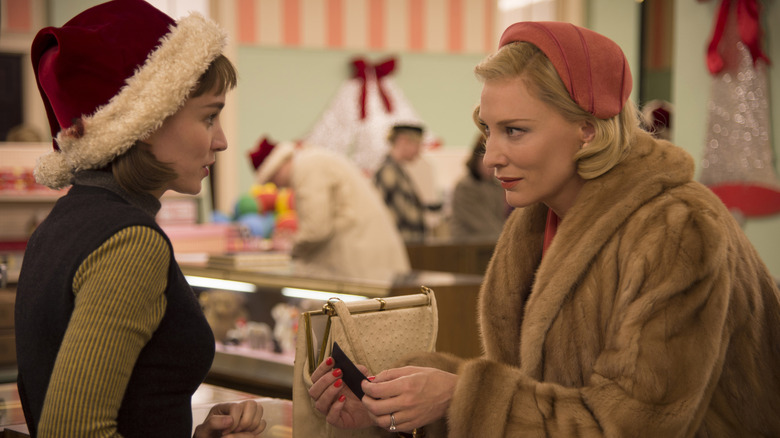
Todd Haynes has directed several period films, including “Far from Heaven” and the HBO miniseries “Mildred Pierce.” However, his most remarkable work is arguably “Carol,” released in 2015, which stands out among his other projects. Starring Cate Blanchett and Rooney Mara, this film tells a compelling love story set in 1950s New York City. “Carol” is renowned as one of the finest lesbian romance movies ever made, avoiding clichéd stereotypes and instead focusing on genuine romance and empathy for its characters’ struggles as star-crossed lovers during a time when their relationship was not socially accepted or validated.
In essence, the film “Carol,” despite being set in more recent times compared to other films on this list, earns its place as one of the finest period pieces due to its portrayal of complex female characters, whose sexual orientations are influenced by the societal norms of the era. As Jesse Pasternack noted for Indiana University’s cinema blog Establishing Shot, Haynes’s period films often depict relationships that would have been difficult or impossible to show in the eras they portray. In this respect, “Carol” is a reflection of its time.
8. Pride & Prejudice
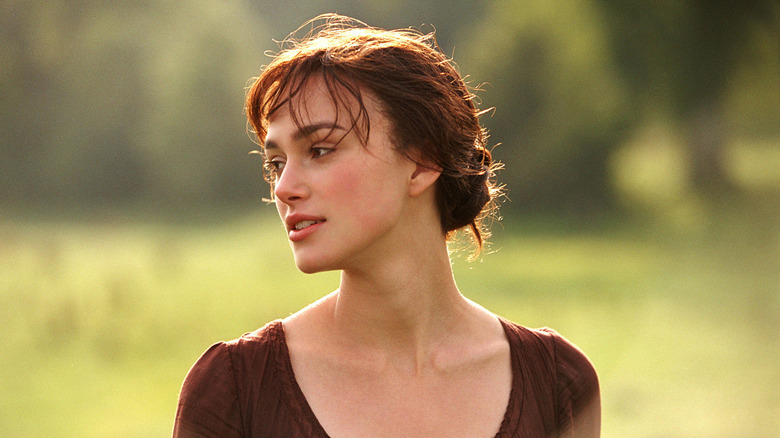
If you envision period films, it’s likely that “Pride and Prejudice,” released in 2005 under the direction of Joe Wright, is one of the first movies that springs to mind. This movie is based on Jane Austen’s 1813 novel, which has been adapted more than a dozen times, but this particular adaptation stands out as the most authentic. Keira Knightley portrays Elizabeth Bennet in this film, and the story revolves around five sisters who aim to marry advantageously to avoid poverty. However, it’s the romantic tale between Elizabeth and Mr. Darcy (played by Matthew Macfadyen) that keeps “Pride and Prejudice” a captivating romance, even in today’s times.
In contrast to those who see Elizabeth and Darcy’s romance as a common “enemy-to-lover” plotline, this movie has significantly impacted subsequent period romances. As stated by Jessica Durgan for the Jane Austen Society of North America, “Pride & Prejudice” captivated both young audiences and mainstream viewers while still resonating with most heritage fans, a key factor in the genre’s growing popularity during the 2000s. Despite perceptions that Keira Knightley’s career peaked after “Pirates of the Caribbean,” this film underscored her enduring love for period pieces, making it a favorite among us devoted admirers.
7. Moulin Rouge!
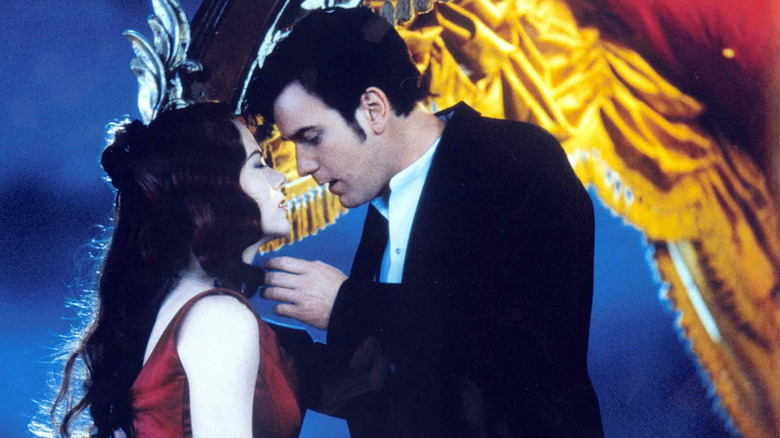
In the realm of period films, Baz Luhrmann has an exceptional knack for creating grand productions. The 2001 film “Moulin Rouge!” is a musical drama, set against the backdrop of Paris in 1899. Here, a young playwright named Christian (played by Ewan McGregor) finds himself smitten with the leading lady of his latest cabaret production, Satine (portrayed by Nicole Kidman). Unlike many other period films on this list, “Moulin Rouge!” offers a vibrant and stylized portrayal of late 19th-century France rather than a strictly realistic one. However, it does not skimp on delivering an impressive visual experience with its Academy Award-winning set and costume designs.
In a striking manner, “Moulin Rouge!” stands out as a period film by making 19th-century France seem contemporary through its innovative soundtrack, which incorporates popular songs from artists such as Madonna, Elton John, and Nirvana. As Rachel Stewart put it for Film Obsessive, this movie is far from typical for a period piece or even a standard musical film, describing it as “unapologetically bold, risky, and excessive.” This audacity has been rewarded, with its Broadway adaptation winning the Best Musical award at the 2021 Tony Awards.
6. Phantom Thread
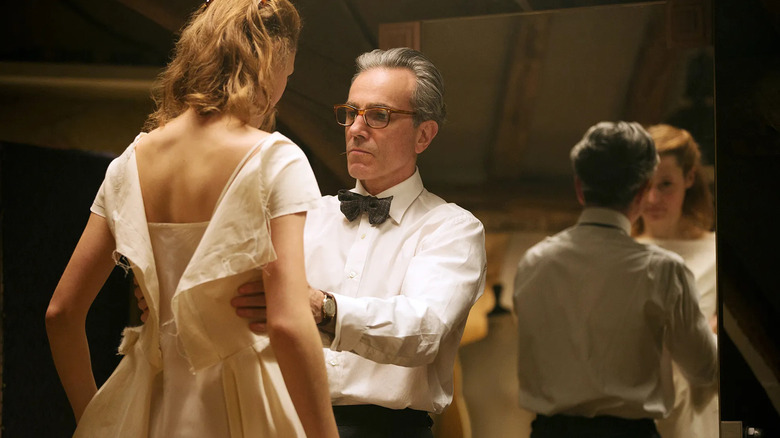
Paul Thomas Anderson’s exceptional period films are too numerous to fit on a single list, ranging from “Boogie Nights” to “There Will Be Blood,” and more recently, “Licorice Pizza.” Yet, among these masterpieces, “Phantom Thread” (2017) stands out as an unexpected choice for the director. The film revolves around a 1950s London dressmaker, Reynolds Woodcock, played by Daniel Day-Lewis, who develops a romantic relationship with a young woman named Alma, portrayed by Vicky Krieps. However, their bond takes an unexpectedly dark turn. What makes “Phantom Thread” so intriguing isn’t just its period setting, but also its raw and gritty portrayal – a deliberate choice by the director.
Based on what Michael Bauman, the director of the PTA project, shared with IndieWire, they aimed to steer clear from the immaculate and pristine aesthetics often associated with period dramas like “The Crown.” He emphasized that their production couldn’t resemble the flawless, brilliantly captured visuals, even though shows like “The Crown” are visually stunning. This unconventional approach earned them favorable critiques, and if Daniel Day-Lewis had kept his retirement promise, it would have been a fitting swan song for his acting career.
5. The Witch
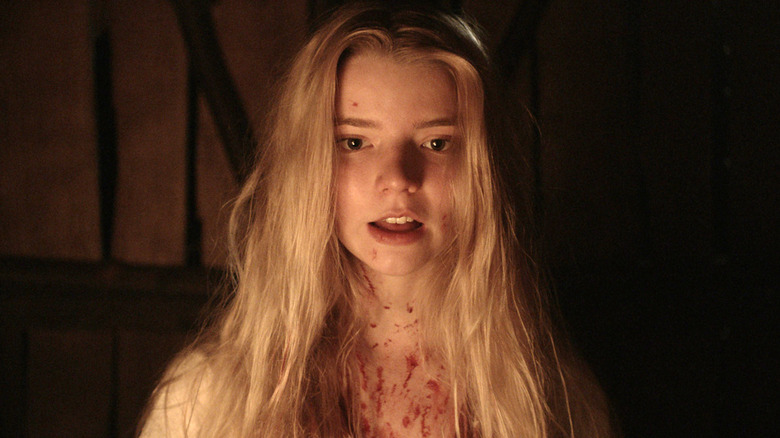
With just one movie, Robert Eggers significantly elevated his own reputation as a well-known director, and he achieved this with his first film, “The Witch,” released in 2015. Remarkably, the film’s lead actress, Anya Taylor-Joy, also gained widespread recognition, captivating audiences as the teenager from a shunned Puritan family in 17th century New England who are haunted by a witch. We Are Indie Horror praised it as “the top horror movie of the past two decades,” describing it as “visually stunning with an eerie blend of music and sounds that creates a chilling atmosphere.
It turns out that Robert Eggers finds that “The Witch” doesn’t seem as fresh today as it once did. This is because he critiques his own directorial skills when revisiting the film. To clarify, “The Witch” isn’t the poorest work in Eggers’ portfolio, and it stands out as his most terrifying, even surpassing his latest release, “Nosferatu.” This might be due to its unwavering commitment to creating a chilling atmosphere of 17th-century New England, achieved through extensive study of the era, American folklore, and the occult.
4. Portrait of a Lady on Fire
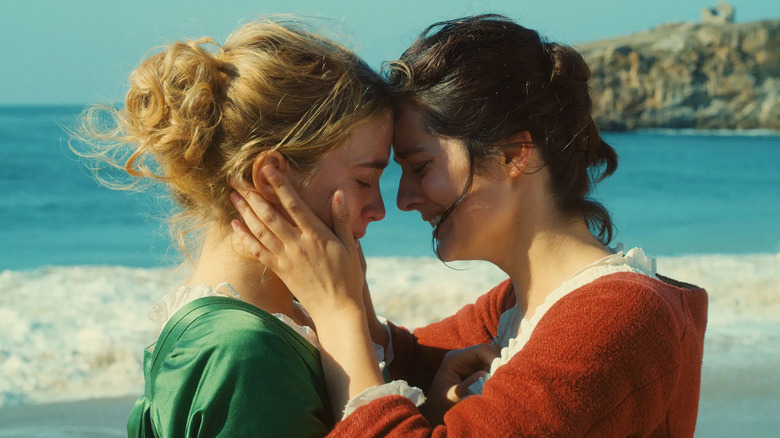
As a gamer, I can vouch that “Portrait of a Lady on Fire” has garnered a solid reputation within the LGBTQ+ community, and after watching this 2019 French film directed by Céline Sciamma, I completely understand why! This captivating tale unfolds in the 18th century, weaving an enchanting love story between Marianne (played brilliantly by Noémie Merlant) – a painter – and Héloïse (Adèle Haenel), an aristocratic woman betrothed to someone she’s never met.
What sets this film apart from other period pieces is its unwavering dedication to authenticity, as it masterfully incorporates vibrant hues and stunning natural lighting instead of the dark or gritty aesthetics often associated with historical dramas. It’s a visual feast that truly transports you to another time!
In its praise for the film “Portrait,” GLAAD acknowledged its exceptional portrayal of queer representation, even in a market already rich with depictions of LGBTQ+ women. They noted that the film’s portrayal of queer relationships was particularly powerful due to its authentic progression. Furthermore, they described the movie as delicate, hesitant, and brimming with longing, a sentiment often resonant in queer romantic experiences. Many film enthusiasts regard this film as one of the finest LGBTQ+ movies ever made, as it seemed long overdue.
3. The Handmaiden
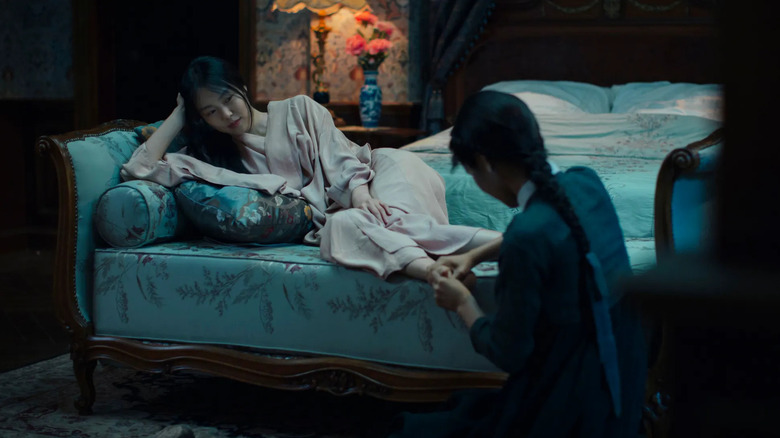
In contrast to Western audiences who may not be familiar with him, Park Chan-wook is a highly influential South Korean filmmaker, recognized for his significant contributions to cinema, with movies like “Oldboy” leaving lasting impressions on their respective genres. In the 2016 romantic thriller “The Handmaiden,” set in occupied Korea under Japanese rule, he showcased his artistic prowess. The story revolves around Lady Hideko (played by Kim Min-hee), a noble heiress who starts an affair with her handmaiden Sook-hee (Kim Tae-ri) while being courted by a con artist pretending to be a count.
In the realm of period dramas, “The Handmaiden” stands out as a captivating portrayal of LGBTQ+ women, often underrepresented in such productions. As Film Inquiry notes, many historical dramas tend to focus on white elites with few exceptions. “‘The Handmaiden'” offers an engaging, liberating queer narrative within a past that might not have been completely accurate, but still feels profoundly moving and visually stunning. For those who appreciate period pieces, especially from international cinema, this South Korean film is a must-watch masterpiece.
2. The Favourite
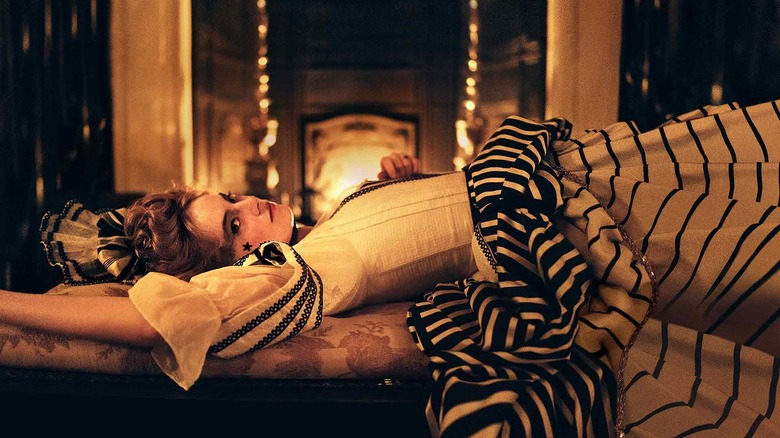
At first glance, “The Favourite” might appear to be a formal and dull period film. However, with Yorgos Lanthimos directing, it proves quite the contrary. This 2018 movie delves into the power struggle for the court favorite position of Queen Anne of England (portrayed by Olivia Colman). The roles of court favorite are aggressively contested by Sarah Churchill (played by Rachel Weisz) and Abigail Hill (Emma Stone), a noblewoman and social climber, respectively. GQ praised the film for its departure from traditional period drama cliches, stating that if you took away the palace setting, costumes, and ancient societal ranks, what remains would be an age-old story.
The movie might be seen as a precursor to the director’s current masterpiece, “Poor Things,” making it an ideal choice for those who appreciated his recent Academy Award winner. Immersing viewers in 18th-century Britain, it skillfully integrates contemporary dialogue into its narrative, boasting impressive costume design, cinematography, and visual aesthetics that stand alongside some of the more renowned period films from earlier on this list.
1. Little Women
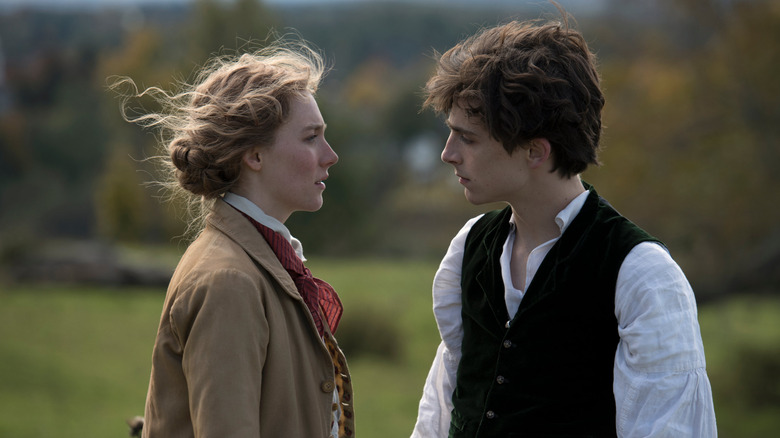
With just three movies under her belt so far, Greta Gerwig stands out as a director without equal in terms of versatility. “Lady Bird” redefined the genre of coming-of-age dramas, “Barbie” shattered box office records with its original approach to an aging intellectual property, and “Little Women,” released in 2019, demonstrated that Gerwig can excel at period pieces as well. Her adaptation of “Little Women,” a classic American novel, is considered one of the best films from the past decade and breathes fresh life into the timeless story of Jo March and her sisters growing up in 19th-century Massachusetts.
In a brilliant move, Gerwig gathered a stellar ensemble featuring Saoirse Ronan, Timothée Chalamet, Florence Pugh, Laura Dern, Meryl Streep, and Bob Odenkirk to portray the March family and associates, each delivering standout performances that breathed fresh life into these classic characters. The Associated Press aptly called “Little Women” a contemporary masterpiece in the period drama genre, praising it for its innovative approach to storytelling, as Gerwig skillfully rearranged the timeline and added complexity where others might have taken shortcuts, resulting in the most authentic adaptation of this familiar tale. Unfortunately, we’re still seething over the fact that Gerwig was overlooked for a best director nomination for this cinematic marvel.
Read More
- Gold Rate Forecast
- Silver Rate Forecast
- Kanye “Ye” West Struggles Through Chaotic, Rain-Soaked Shanghai Concert
- Mech Vs Aliens codes – Currently active promos (June 2025)
- PUBG Mobile heads back to Riyadh for EWC 2025
- Honor of Kings returns for the 2025 Esports World Cup with a whopping $3 million prize pool
- Arknights celebrates fifth anniversary in style with new limited-time event
- USD CNY PREDICTION
- Every Upcoming Zac Efron Movie And TV Show
- Superman: DCU Movie Has Already Broken 3 Box Office Records
2025-02-11 15:32